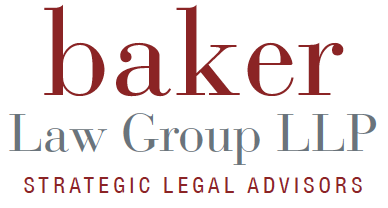EEOC Disability Guidelines: Part 1
 This blog is the first of a two-part series this month that will explore the Equal Employment Opportunity Commission guidelines regarding how specific diagnosis may be handled under the Americans with Disabilities Act (ADA). In this post, we will highlight some of the key aspects of the EEOC’s guidelines when it comes to disability.
This blog is the first of a two-part series this month that will explore the Equal Employment Opportunity Commission guidelines regarding how specific diagnosis may be handled under the Americans with Disabilities Act (ADA). In this post, we will highlight some of the key aspects of the EEOC’s guidelines when it comes to disability.
Diabetes Disability
The EEOC says that most people with diabetes should have no problem being considered disabled for the purposes of the ADA because most people with diabetes are limited in one or more major life activities.
The EEOC guidelines state that an employer may not ask a job applicant questions about diabetes. However, if the applicant voluntarily provides the information the employer may ask follow-up questions such as whether the applicant uses insulin or experiences episodes of hypoglycemia, or whether the applicant will need assistance when her or his blood sugar drops. Additionally, the employer may question whether reasonable accommodation would be necessary if the applicant has an obvious disability.
An employer may also ask disability related questions if performance on the job becomes an issue after being hired. For example, if an employee experiences extreme fatigue or irritability the employer may ask questions as to the reason why. If an employer feels that an employee may be unable to perform the job or poses a direct threat to him or herself or others then the employer may ask for medical information about the employee’s condition. However, the employer is only allowed to obtain enough information as necessary to ensure that the employee can perform the duties of the job safely.
The guidelines also go on to list a number of accommodations that employees with diabetes may require, including:
- A private location to test insulin levels
- A place to rest when blood sugar becomes abnormal
- Breaks to drink, eat, take medication, or test blood sugar
- A leave of absence for treatment, or to obtain training on managing diabetes
- Modified work schedules
- Distribution of inessential tasks to other workers
- Reassignment to a vacant position, with equivalent status and pay
Epilepsy Disability
As with diabetes, an employer may not ask disability related questions, except if the applicant voluntarily brings it up or the disability is obvious. The EEOC also requires that employers who know an employee has epilepsy, keep the information confidential even if the employee suffers a seizure on the job. Accommodations for epilepsy include:
- Breaks for ingesting medication
- Leave of absence to adjust to a new medication regimen or to recuperate from treatment
- A private area to recover from a seizure
- A cushion to break a fall
- Work schedule adjustments
If you have been discriminated against by your employer due to a disability, stand up and fight discrimination. Contact employment law attorney Michelle Baker as soon as possible. Schedule your free consultation online or call (858) 452-0093 today.
